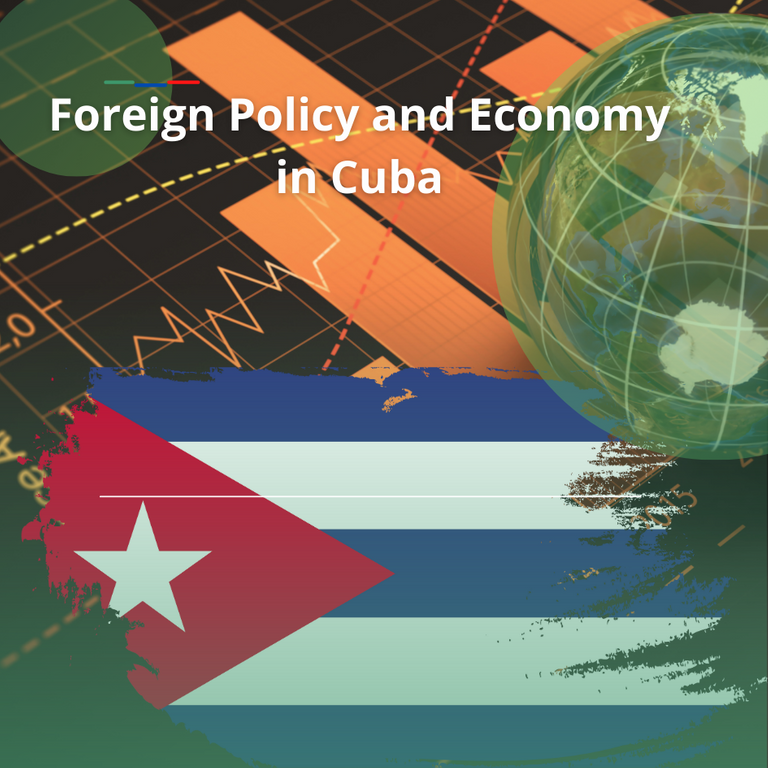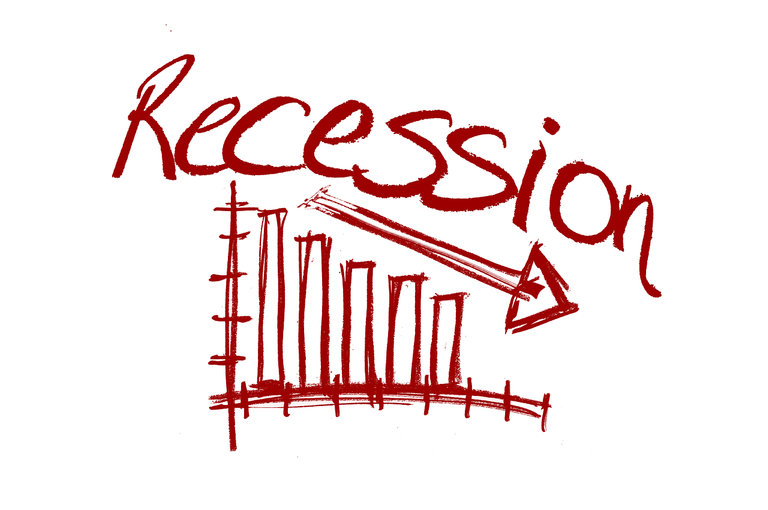Foreign Policy and Economy, in Cuba
Hello everyone! 🦁
In this publication, I will mainly share information on the influence of foreign policy towards Cuba and how it has impacted its economy.

Cover image created in Canva
The relationship between economics and politics is close and dependent on each other. The decisions and actions, or lack thereof, of political leaders, government organizations and ministers have a direct impact on a country's economy. Those elected to govern are responsible for taking measures that encourage investment, innovation and entrepreneurship. Reforms necessary for the economic growth and development of a society. It is impossible to have economic development without efficient political management.
Likewise, a nation's economic development depends not only on its domestic policy, but also on its foreign policy. Foreign policy is a key aspect that defines a country's decisions, strategies, relations and actions towards the other nations around it.
In my country, Cuba, its foreign policy is a key factor to take into account when analyzing its economy, as it has had a significant impact on it. Foreign trade is an important engine for a country's growth, and the limitations imposed on Cuba to trade with other countries in the world have forced it to adapt its international policy over the years. An example of this was the collapse of the socialist block, which represented Cuba's main economic and trading partner. Faced with this situation, the country had to look for new partners in Asia, Africa and the Middle East. On the other hand, US foreign policy towards the island has had a very unfavorable influence on the nation's economic development.
In the early 1960s, when there was a change of political regime in Cuba and the government nationalized US companies and properties, the United States responded to these actions by imposing a series of restrictive economic and trade sanctions. I am referring to the Economic Embargo, which has been in place for 60 years, and which has a direct effect on the economy, significantly limiting Cuba's relations with the rest of the world.
Cubans have been hearing for several generations that our economic problems (which are many) are due to the sanctions against our economy. However, after years of facing the same obstacles and with the worsening economic situation due to the Covid-19 pandemic, many Cubans no longer want to hear about the embargo. For some, the government is even hiding behind this issue in order not to address the current problems.
It is clear that we must work on solving the country's internal problems and that our leaders and politicians must seek mechanisms to resolve the difficulties that most affect us today, such as the causes that have generated the inflation crisis, the great food shortage crisis, and the problems of indiscipline that all this generates. However, neither can we ignore the reality of the economic embargo, which has limited our capacity for growth for several decades. An embargo that has intensified in recent years.
The economic embargo, or blockade as we Cubans call it, is based on several laws that have been adopted by the United States over the years, these are: the Trading with the Enemy Act (1917), the Foreign Assistance Act (1961), the Cuban Assets Control Regulations of the Department of the Treasury (1963), the Export Administration Act (1979), the Export Administration Regulations (1979), the Cuban Democracy or Torricelli Act (1992), the Cuban Liberty and Democratic Solidarity or Helms-Burton Act (1996), and the Trade Sanctions Reform and Export Enhancement Act (2000). A set of laws aimed at limiting our commercial operations, which can be summarized as follows:
Restricting Cuba's ability to trade with the US and other countries around the world, resulting in a loss of export and import opportunities. Financial restrictions that have made it difficult for Cuba to access international loans and financing, resulting in retaliation against many foreign companies that have invested in Cuba, reducing the amount of foreign direct investment in the country. Make it difficult for Cuba to access advanced technology and resources, which has negatively affected the country's ability to develop its infrastructure and improve its economy. Increasing import and export costs, which has made Cuban products less competitive on the international market.
These measures are also aimed at depriving the nation of the energy and fuel supplies it needs to function. Purchasing fuel has become very difficult because shipping companies and port agencies fear the sanctions that the US could impose on them if they do business with Cuba. The consequences of this have been the cessation of industries, the reduction of transport and serious disruptions in the electricity service, which has significantly affected the quality of life of the population, generating great discontent.
👎👎👎
Another example is Cuba's inclusion on the list of countries that sponsor terrorism, which has brought enormous difficulties to Cuba's economic, commercial, banking and financial activity. This has limited the country's possibilities to obtain credits and make payments, which has had a serious impact because commercial and financial organizations refuse to interact with Cuba for fear of the reprisals of the US government.
The embargo cuts off the Cuban economy's sources of income, depriving it of the capital necessary for its development, which has a high cost for the people and is reflected in the significant migratory flows of Cubans. Economic crises in any country, and the resulting deterioration of living conditions, are factors that promote migration. What is particular to Cuba is that this crisis is promoted by an external force that further aggravates the already complex situation.
It is important to note that the economic embargo has been criticized by various international sectors. Many argue that it is a useless measure to bring about political change in Cuba, and that it has caused unnecessary suffering to its citizens. It has also been condemned on multiple occasions by the UN General Assembly because it is seen as a violation of the nation's right to sovereignty.
Taking into account the impact on the economy, society and the daily life of all Cubans, we can conclude that the Economic Embargo is a reality that directly threatens the development of the nation, with serious social consequences. In this sense, it is important to continue working on the search for internal and external solutions to overcome the difficulties that Cuba faces.
So far, I bid you farewell, hoping that this publication has been useful. See you next time! 🖐
You can fallow me on my social networks:
Discord: jordy0827#8374
Twitter: https://www.twitter.com/Yordis17417444
Posted Using LeoFinance Alpha


Congratulations @jordy0827! You have completed the following achievement on the Hive blockchain And have been rewarded with New badge(s)
Your next target is to reach 100 posts.
You can view your badges on your board and compare yourself to others in the Ranking
If you no longer want to receive notifications, reply to this comment with the word
STOPTo support your work, I also upvoted your post!
Check out our last posts:
Hi friend. You can come to our community in Deep Dives and make a career there 🙃. Big effort with this post!
Jeje, that's nice of you but I don't think so. I still have a long way to go